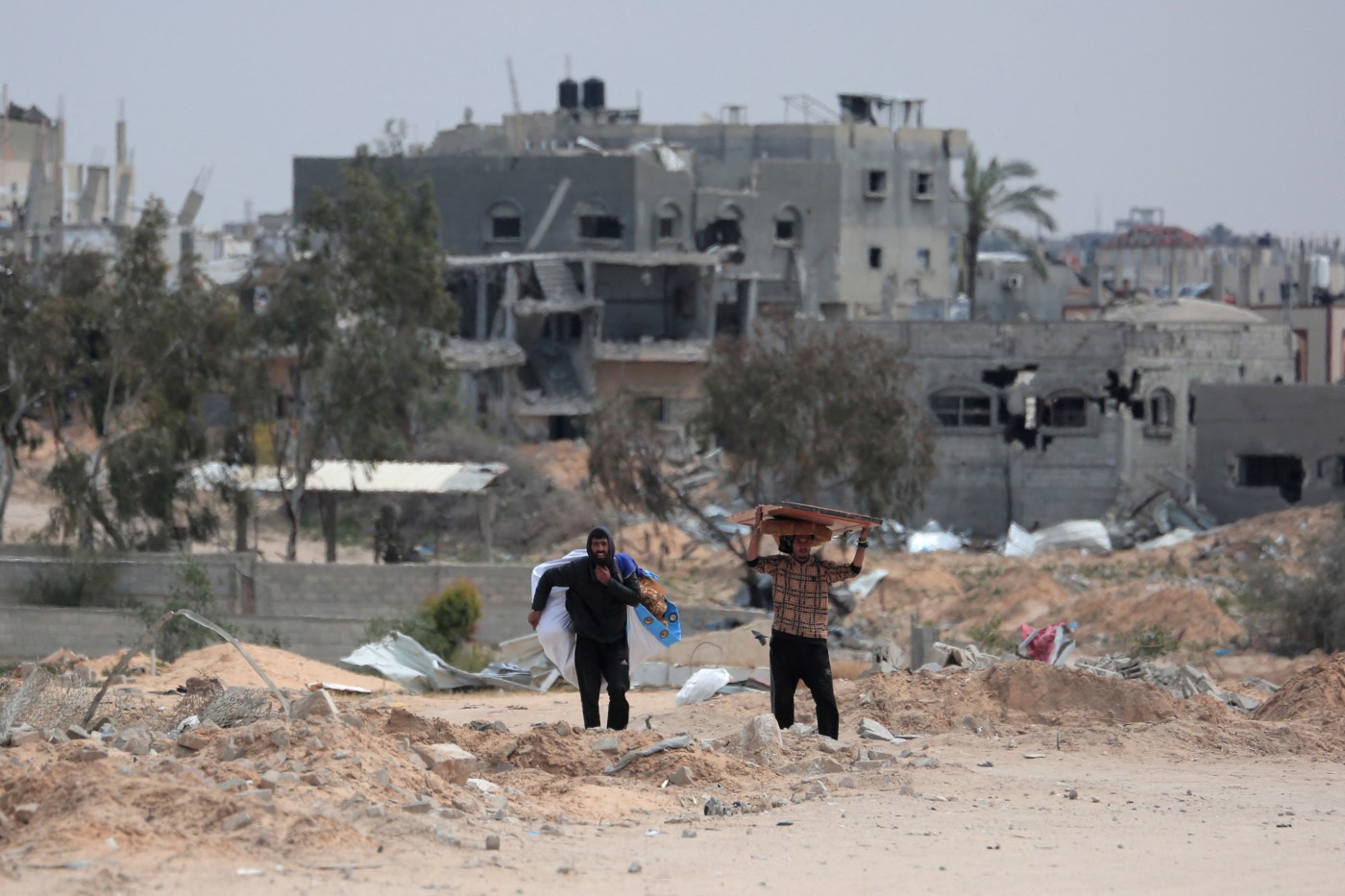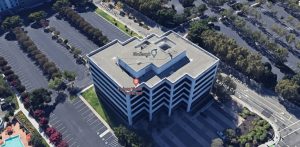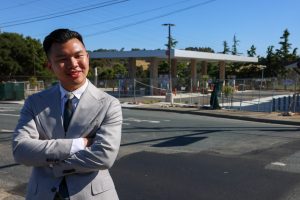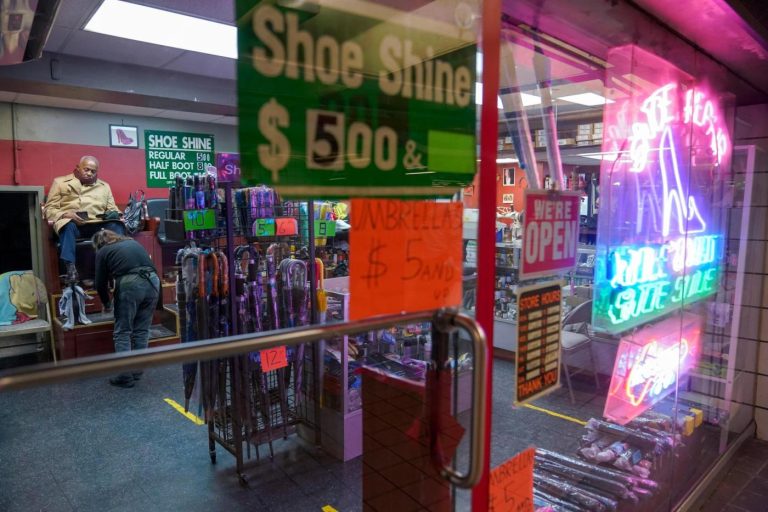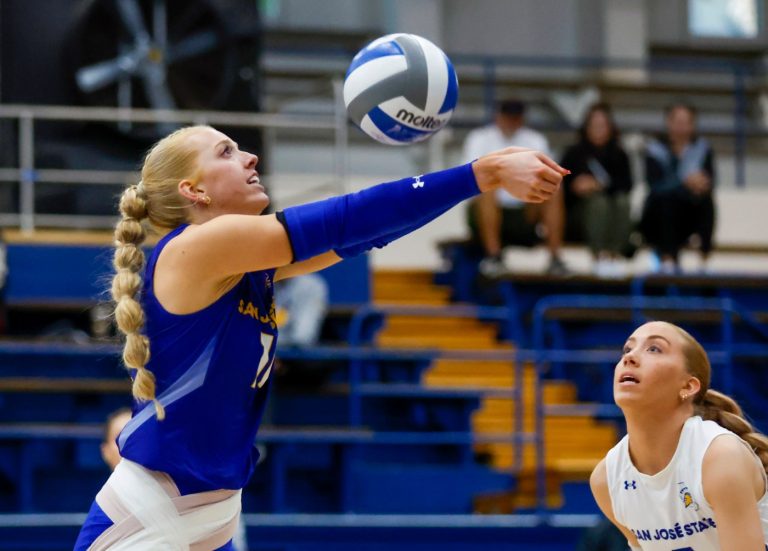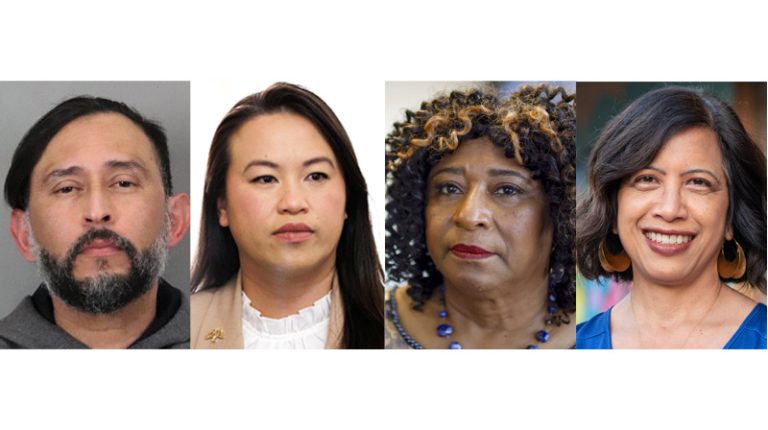Weeks after returning from a humanitarian mission in Gaza, Ross Valley nurse Sandy Adler is still aggrieved for the innocent, the injured, the maimed — the Palestinians who face starvation and death in the ongoing war between Israel and Hamas terrorists.
“My heart breaks almost every day for the people there, what the innocent are going through,” said Adler, whose team attended to hundreds of patients in Khan Yunis, which is just north of the beleaguered Gaza city of Rafah.
“It feels to me that being in a war zone brings out the best in people, but also the worst,” Adler said. “The things human beings can do to each other are unconscionable, but there is also the incredible beauty and grace that comes out in people that is so life-affirming.”
Adler, a Fairfax resident, is an emergency room pediatric nurse who had already worked on the humanitarian crisis of the 2023 Turkey and Syria earthquake – which claimed more than 60,000 lives – when she set out on a mission to Gaza on March 12.
From March 18 to April 1, she served alongside the Palestine Red Crescent Society, the equivalent of the Red Cross, and seven other humanitarian medical professionals within the fenced confines of an artificial turf soccer field treating a procession of injured and dying Palestinians.
Around the field, what was once a city was in ruins, she said.
Nurse Sandy Adler joined a humanitarian medical team in Gaza to help injured Palestinians. (Sherry LaVars/Marin Independent Journal)
“We were in the middle of a war zone,” she said. “There was constant bombing, constant gunfire. Throughout the day we were able to not only see, but also hear the buzzing of the armed drones. We had several, many mass casualty incidents.”
Adler, a resident of Ross Valley for nearly 30 years, has worked as an emergency room and pediatric nurse for Kaiser Permanente East Bay, primarily in Richmond. She also manages a private lactation consultant practice in Marin. She said she saw her work in Gaza as an ethical imperative, and eschewed the politics of the conflict in light of required medical treatment for the vulnerable.
Her trip was sponsored by Cadus, a nonprofit and independent aid organization in Berlin. The group works in conjunction with the World Health Organization to provide aid during catastrophes, including in active conflict zones.
The war began after Hamas militants attacked southern Israel on Oct. 7, killing around 1,200 people and taking about 250 hostages.
The Center for Strategic and International Studies ranked the episode as the most fatal attack of the last 50 years when measured per capita.
“This is catastrophic compared to any normal terrorist attack,” said Michael Leiter, former director of the United States National Security Center.
Israel invaded Gaza, which has a population of about 2.3 million people, and the war has killed more than 34,000 Palestinians and wounded 77,000 others, Al Jazeera reported in mid-April, citing data from the Gaza Health Ministry.
About 72% of those killed are women and children, Gaza’s Government Media Office told Al Jazeera.
The Committee to Protect Journalists says at least 105 journalists and media workers have been among the fatalities in the war.
One of Adler’s colleagues, Dr. Hareen De Silva, a 38-year-old general practitioner from London, served as the “head of mission” — a role that required him to meet daily international agencies and humanitarian coordinators while working alongside Adler and the team.
De Silva has worked in Greece, Syria, Iraq and Ukraine, but he called Gaza by far the worst humanitarian crisis he has ever attended to.
“The sprawling number of tents and the immense destitution you see daily is heartbreaking, and this is before you see the physical injuries,” he said.
The horror among the workers was common.
Adler said she encountered bullet-riddled children, bomb-mangled corpses, mothers doubled over with intestinal diseases. And despite the groups’ efforts, they had little medication or resources to help every infirm or injured person.
Sometimes, she said, the site felt like a “transition point for all the dead bodies.”
But there were glimpses of humanity. Adler recalled a young girl who communicated with her in Arabic. While Adler cared for the girl’s brother, she always was “smiley, sweet and full of love.”
Adler recalled another patient, who was being treated for her wounds without medication, holding her hands in the shape of a heart over her chest — a universal sign of affection.
The children, Adler said, often returned to the site with smiles on their faces and to practice English despite the lack of schools in the area.
“Their former life is gone, but there is so much grace, kindness and warmth,” Adler said. “Not knowing what their future will hold — not knowing if the next bombing will injure or kill their family members — they still carry themselves with humanity.”
Every few days, a man, wife and two young children would return to the site for wound care, Adler said. Much of the man’s torso was wounded during an attack, she said. She recalled one moment while the man’s son held his father’s arm aloft so Adler could reach the wound.
“He needed plastic surgery, but no plastic surgeons were available. So every single time I would care for him while he was there,” she said. “It was extremely painful.”
All the workers had for pain management was injectable ibuprofen. Others received ketamine in order to distort the pain, she said.
One Palestinian woman gave birth at the site. She came to the medical tent with the umbilical cord attached. Part of Adler’s training as a lactation consultant and experience as a postpartum nurse allowed her to treat the mother and child, and get the child to the breast.
“We had a number of births in our tent and a number of women coming for supporting care,” she said.
Adler said she did not discuss politics or allegiances with the patients.
“On the whole, they just want life and safety and security,” she said. “They just want what every human being wants.”
As soon as Adler boarded the bus on her final day of the mission, she burst into tears. She still has a tourniquet that the Palestinian medical team gave to her — scrawled with names, pictures, poems, thank-yous. She also was leaving behind her colleagues from the Palestine Red Crescent Society. Adler said she still views them as the true heroes of the conflict.
“I did not want to go. I did not want to leave. There was so much work to do,” she said.
That same day, an Israeli air strike in Gaza killed seven aid workers from World Central Kitchen. The victims included Brits, Poles, Australians, Palestinians and a dual U.S.-Canadian citizen.
Just then, some desperately needed aid halted. The trickle of aid workers dwindled.
Related Articles
Biden tells Morehouse graduates that scenes in Gaza from the Israel-Hamas war break his heart, too
An ultimatum raises pressure on Netanyahu to make postwar plans for Gaza, even as fighting rages
Hundreds of pro-Palestinian protesters rally in the rain in DC to mark a painful present and past
Member of Israel’s War Cabinet says he’ll quit the government June 8 unless there’s a new war plan
French police shoot, kill suspect in synagogue arson
“For my time, we felt we were fairly safe and would not be targeted. Some didn’t take the risk. Some missions were canceled. But for the team replacing us, they did not know what the rules were at that point,” Adler said.
Humanitarian efforts in Khan Yunis have become even more magnified as a potential full-scale invasion looms over Rafah, where about 1 million Palestinians are sheltering, according to the New York Times.
In the meantime, the Biden administration signaled it would move forward on a new $1 billion sale of arms and ammunition to Israel. All the while, a diaspora of displaced Palestinians is headed for Khan Yunis, Adler said. But the border crossing where she entered has since been closed.
“No one knows when it is going to be opening again,” she said.
Adler returned home from the mission on April 7.
May 5 was Adler’s birthday and she said she only wished for a cease-fire, peace and a return of the hostages. But until the fighting ceases and the carnage quells, she refuses to give up hope that she will return soon to either Khan Yunis or another site on another aid mission.
“I can only keep holding the people there in my heart right now, that the people in power on both sides will find a way to end this horror; for the Palestinian people to have peace, to find sustenance, to rebuild their homes, to have their children go back to school, to find work to continue having a life,” she said.
